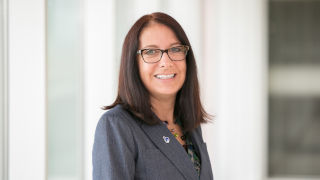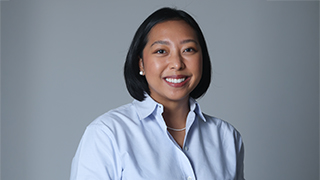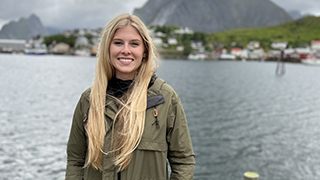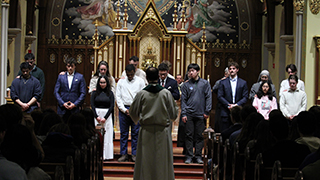Meet the Social Workers’ Social Worker: Dawn Apgar Guides Students to Licensure Success
Tuesday, September 23, 2025

Dawn Apgar, PhD, LSW, ACSW
Dawn Apgar, Ph.D., LSW, ACSW, director of the B.A. social work program, associate professor of social work and public administration in the College of Arts and Sciences, has helped tens of thousands of social work students prepare for and pass their licensure exams. Her exam preparation guides, practice tests, and companion resources have become widely trusted tools for students pursuing social work licensure across the United States.
She traced the origins of this work to a gap she noticed years ago. “I found that there weren’t a lot of study materials for social workers,” she explained, “so I started doing teaching kind of like, a bar exam prep course.” Her courses quickly gained a reputation for their quality and impact, earning strong praise from students. As her teaching became widely recognized, a publisher approached her about developing prep materials, and what began as one book quickly expanded into four books and additional resources. Currently, her books for the licensure exams are in their fourth editions, and she has all new books coming out in 2026 when the social work licensure exam changes due to a recent practice analysis.
Today, those print guides sit alongside a growing online platform. “We’re no longer limited to printed books,” Apgar noted, pointing to “subscription-based materials with games, flashcards, and discussion boards,” as well as monthly live classes she leads on Zoom. “I post new study materials and professional resources in real time,” she added. She sees candidates using this mix of text, practice, and ongoing conversation to prepare more effectively.
Use of her materials extends well beyond campus. Apgar’s books are used by the National Association of Social Workers in most states for their prep programs. Over years of teaching and writing, she has watched students progress through multiple credentials, often hearing, “I’ve been using your products throughout my professional career!” With a smile, she joked, “I feel like I’m a social worker to social workers.”
Her guidance also connects directly to Seton Hall’s master’s program in social work. She encouraged students by reminding them, “You can take the master’s exam the last semester of your coursework,” a timeline that allows second-year students to move from classroom to credential without losing momentum. This practical advice reflects her broader philosophy of preparation and placement. “Social work is not something you can do at home. It’s a people profession,” she emphasized. In that spirit, “internships often become pathways to first jobs, faculty continue to serve as sounding boards for the next step, and professional associations widen the circle of support.” All of these opportunities, she noted, are strengthened by the environment in which students learn.
Apgar is explicit that the environment matters. “In some ways, I think being at Seton Hall is a privilege, we have the oldest accredited undergraduate social work program in the state, and we’ve been accredited since the 1970s,” she said. She also emphasizes how University Libraries support both students and faculty. “The library is a great resource,” she noted, urging students to “check out the books, use them on reserve,” especially when costs are a concern.
Apgar’s teaching and authorship grew out of a long career in social work practice and policy. Before Seton Hall, she directed a disability research center for 14 years at the New Jersey Institute of Technology, served as deputy commissioner of the New Jersey Department of Human Services, and chaired the state Board of Social Work Examiners. These roles inform her current scholarship on “the intersection between licensure, meaning regulation, education, and practice, and how those things interface and affect one another.”
Apgar closes with a straightforward message to future social workers, especially to those who are considering Seton Hall’s social work programs. “I am more excited about social work here and now than I have ever been,” she said. From distinguished faculty and dedicated mentors, to a supportive library recognized as outstanding academic resources, and to interdisciplinary collaborations that foster the broader perspectives, Seton Hall University offers a perfect community that connects coursework, practice, and licensure. “There is a seat at the table here for everyone.”
Categories: Education






